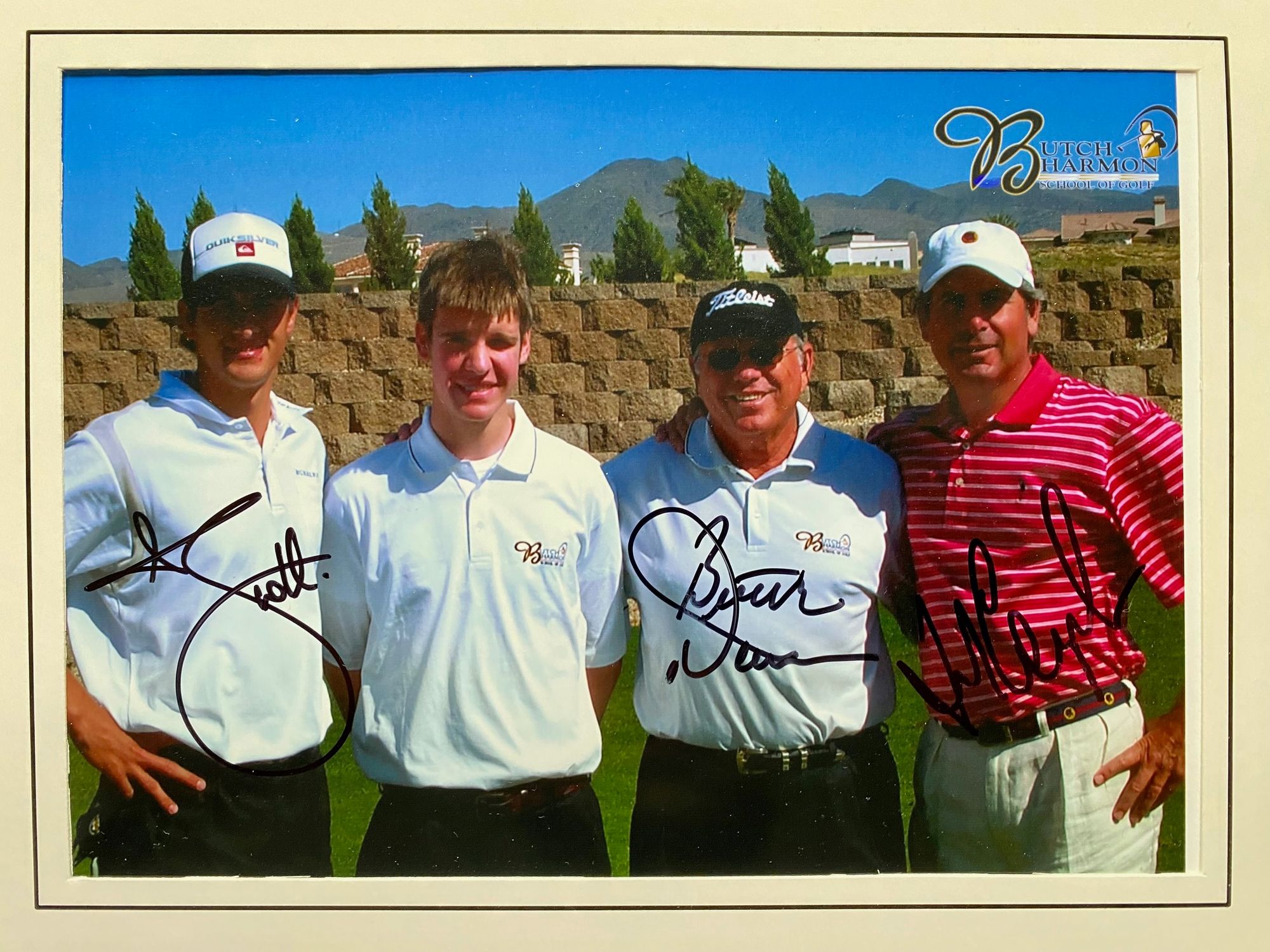Amateurs and Pros

At my high school (go Bengals), all seniors participated in something called Project Real. For the final two weeks of the year, students shadowed someone in a job that interested them, then reported back in small group review sessions before graduation.
Most people shadowed someone like an attorney, accountant, or doctor. Maybe the adventurous ones shadowed the police, firefighters, or (in one case) a medical examiner. Most people just wanted to endure the two weeks and start that glorious last summer before college.
Being a calculated risk-taker, I thought I'd take a shot and email Butch Harmon to see if I could shadow him for two weeks.
For those who don't know, Butch has been rated the #1 golf instructor in the world every year since 2003. He is best known for coaching Tiger Woods from 1993 to 2004, and has also worked with Adam Scott, Rickie Fowler, Fred Couples, Greg Norman, Ernie Els, Phil Mickelson, and many others.
If you've seen any golf on TV in the last 30 years, you've likely seen someone that Butch coached.
The schedule worked out that Butch would be at his golf school outside of Las Vegas during Project Real, and he was willing to let me shadow him. After getting my dad involved, including a pledge that his 18-year-old kid wouldn't be allowed to run free in Vegas, we set up the trip and spent two weeks in the desert. (To this day, I believe incredible things can happen when you just ask.)
Although I had played golf since I was nine, other than attending a PGA event in Akron a few times, I hadn't spent any time around tour pros. My time with Butch started around mid-May, and I got to watch guys like Adam Scott (who, no big deal, bought me a strawberry banana smoothie), Fred Couples, and Stewart Cink tune up their games for a critical stretch of the season.

Since Butch's place was a functioning golf school, amateurs could also sign up for two- or three-day golf schools. So in addition to seeing the tour pros practice, I helped many amateurs work on their games with Butch and his teaching assistants.
Outside of raw talent, the contrast between amateurs and pros was stark in other ways. The pros were methodical and intentional, and practiced with a plan to improve weak spots. The amateurs were haphazard and practiced whatever they felt like, usually seeing who could hit the longest drive. The pros were focused, and the amateurs were distracted (and, being in Vegas, often hilariously hungover).
And it's taken me 19 years, but I've begun to realize that there are amateurs and pros off the golf course, too.
Amateurs are the bosses who don't return emails and expect everyone else to hold meetings to which they're chronically late. They're the parents scrolling social media while their kids run around desperate for attention.
On the other hand, pros are coworkers who follow through on what they say they'll do. They're also the hardware store employees who care enough about the job to help solve your problem.
Pros can be employees, managers, customers, vendors, parents, siblings, friends, servers, and hotel concierges. Title, income, and status don't make a difference. I know CEOs and Managing Directors who are amateurs, and interns and grocery cashiers who are pros.
Being a pro doesn't mean doing everything perfectly every time. That's not human. It's about doing the right thing most of the time. Texting or emailing if you're running late to a meeting most of the time. Following up how you say you will most of the time. Showing up as a good version of yourself for your family most of the time. Being kind to others most of the time.
To better illustrate the point, here are some characteristics contrasting amateurs and pros. Many of these, like showing up late, seem geared to the office, but we all have those friends that are ALWAYS late. Most of these apply outside of work too.
Amateurs:
- Are consistently late and expect others to wait on them
- Don't follow through, even when others rely on them
- Fuel drama in the office, at home, and elsewhere
- Use complexity to mask incompetence or to make others feel inferior
- Show up unprepared
- Blame others
- Treat work as a have-to-do rather than a get-to-do
- Say "that's not my job"
- Praise in private (or not at all) and criticize in public
- Believe life is something that just happens to them
- Give their worst energy to what's most important in life
- Stick to their own needs and don't compromise
- Treat "less important" people (waiters, cashiers, office admins, their kids, etc.) as inferior
Pros:
- Arrive on time or give heads up if they're running late
- Keep things simple
- Show up prepared
- Respond when their input is needed
- Ask questions
- Negotiate, empathize, concede, and meet in the middle
- Take pride in their work, in the office, at home, and everywhere in between
- Offer to help when they can
- Praise publicly, blame/correct privately
- Manage their energy to bring their best selves to what's most important
- Take ownership of and responsibility for their lives
- Treat everyone, from the CEO of their company to the guy begging for change outside the restaurant, with kindness and compassion
Since beginning to see the world through this lens, I've become much more appreciative of pros and understanding of amateurs. It doesn't excuse their behavior, but in many cases, amateurs just don't know any better. Like the amateurs at Butch's golf school, they don't take the time to understand what's important, what to focus on, and how to get better.
The encouraging part? Not all of us can hit a bucket of 7-irons into the same 10-foot circle like Fred Couples or drive the ball 350 yards like Adam Scott, but we can all be pros at work, home, and everywhere in between... most of the time.